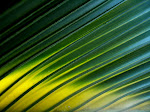Brian Handwerkfor National Geographic News
July 29, 2008
A taste for naturally fermented palm "beer" has turned a tiny Malaysian mammal into a chronic boozer, a new study shows. The pen-tailed tree shrew is the first non-human mammal known to display alcoholic behavior.What's more, the rat-size animal never gets drunk during its nonstop jungle jamborees. (Read: "Elephants Drunk in the Wild? Scientists Put the Myth to Rest" [December 19, 2005].)Because the species is considered similar to the ancient ancestors of all primates, its 55-million-year bender suggests that our own taste for alcohol might predate the known advent of brewing some 9,000 years ago. "The circumstances in which these tree shrews consume alcohol could be similar to past scenarios of human evolution in pre-primate or early primate stages [and] could somehow be a link to human alcohol consumption," said study lead author Frank Wiens, a biologist at the University of Bayreuth, Germany. Wiens and colleagues' findings were published in Proceedings of the National Academy of Sciences.High ToleranceThe flowers of the bertam palm produce nectar which naturally ferments—with the aid of several yeast species—to a 3.8 percent alcohol strength, similar to that of many beers. Because the plant flowers nearly year-round, its rain forest bar is always open, and the pen-tailed tree shrew—along with several other local mammal species—are regulars. The animals spend an average of two hours per night sipping the nectar, which appears to be their primary food source. To test the animals' alcohol consumption, Wiens and colleagues tested the animals' hair samples for ethyl glucuronide and found that the tree shrews consume alcohol at rates that would be dangerous to most mammals. The tree shrews appear to have more efficient ways of metabolizing alcohol than humans, so they avoid getting drunk. Inebriation would be dangerous for small, potentially tasty mammals, Wiens said. "This is a stable ecological relationship for millions of years, and it doesn't make sense to have inebriation in this system. Inebriation would increase the risk for these small animals to be killed by a predator." But Wiens notes that just because the animals are not drunk doesn't mean that their boozing has no consequences. "If [they] avoid inebriation, I still suspect that alcohol has some very specific effects on their brain and behavior," he said. To Your Health?Wiens also suggests that the 55-million-year binge probably confers some advantages to both the tree shrew and plant. Alcohol production appears critical to the palms' reproduction because it entices tree shrews to pollinate their flowers. "If alcohol is crucial for an ecological relationship [like the pollinator relationship], then it should also exert some sort of beneficial effect to the animals and we can only speculate on those effects," Wiens said. Robert Dudley, a physiologist at the University of California, Berkeley, also suggested several hypotheses. "We know that alcoholism is very detrimental," Dudley said."But there are some positive features of low-level alcohol consumption, like protection against cardiovascular risk," he said."Another [possibility] is the aperitif effect that has been well described in humans. It may stimulate feeding and increase overall caloric intake." Evolutionary HangoverThe tree shrew's drinking habits could cast human alcohol use in an entirely new light. Despite their name, tree shrews are thought to be similar to the ancient ancestors of all primates, including humans, which existed some 55 million years ago. It's often assumed that humans did not drink alcohol—or had only a bit of low-dose naturally fermented brew—before the believed advent of brewing about 9,000 years ago. (Read: "9,000-Year-Old Beer Re-Created From Chinese Recipe" [July 18, 2005].)But it's possible that our ancient ancestors were chronic drinkers, like the tree shrew, very early in primate evolution, experts say."There [may be] some evolutionary background to human drinking that goes much farther back than the invention of brewing," Wiens said. Dudley of UC-Berkeley agreed."If we look at human ancestors [and recent relatives] like chimps and gibbons, they are all eating fruit [and nectar] much of the time," Dudley said."So we may have inherited an ancestral association of ethanol intake with caloric gain that would predispose us to drink alcohol."
Wednesday, 30 July 2008
Subscribe to:
Comments (Atom)




